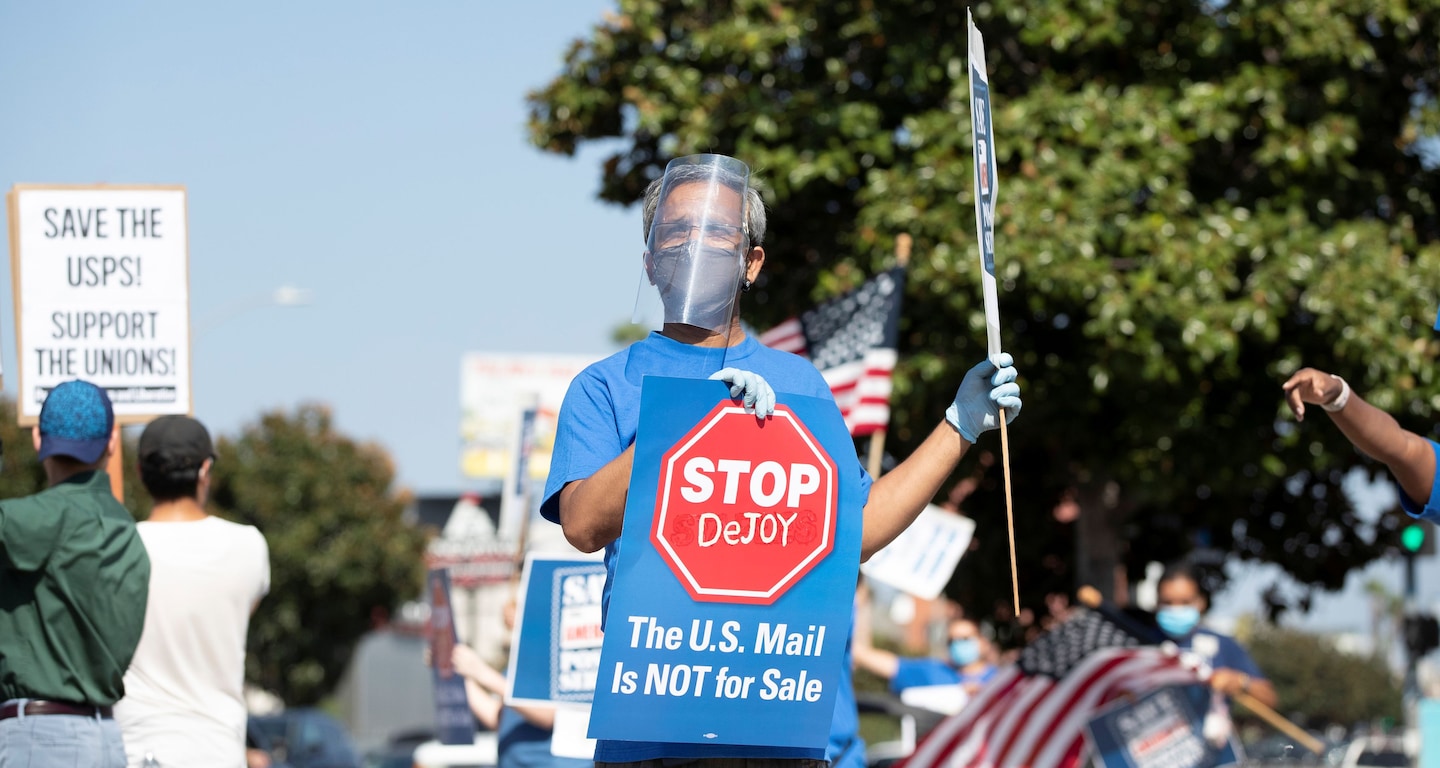‘Everyone’s clueless’: Cost-cutting uncertainty mires Postal Service in more delays

In Philadelphia, some letter carriers have gone two weeks without a day off, said one postal worker who, like 11 others interviewed for this piece, spoke on the condition of anonymity because of fears of reprisal from their superiors. Processing facilities in other parts of Pennsylvania — Scranton, Harrisburg, Lancaster, the Lehigh Valley — have week-long package backlogs. In Florida, some workers are being instructed not to log mail that arrives after carriers have left on their routes, an anathema to long-serving agency employees.
In the Great Lakes region, which includes parts of Michigan, Wisconsin, Indiana, Illinois and Missouri, managers are unsure whether DeJoy’s realignment of the agency will continue, further slowing the daily movement of hundreds of millions of mail items.
“Everyone’s clueless,” said one region mid-level manager.
In other areas, including California, Iowa, Minnesota and Wisconsin, postal workers say previous delays have been resolved, but employees are bracing for the election and holiday season, and additional changes DeJoy could institute after the Nov. 3 vote. The plans under consideration, described by four people familiar with Postal Service discussions, include geography-based pricing, lower mail delivery standards and raising prices.
Questions about DeJoy’s intentions — both in the run-up to the election and long-term — have raised suspicions among some postal workers, as well as the agency’s powerful unions. The former logistics executive and GOP megadonor also has drawn the ire of Democrats and voting rights advocates, who worry postal slowdowns will interfere in an election in which nearly 180 million Americans are eligible to vote by mail.
Conservatives have long viewed the Postal Service as ripe for privatization, or at least a private-sector style haircut. Sen. Ron Johnson (R-Wis.), who chairs the committee in charge of postal oversight, said the Senate may consider fulfilling the USPS’s $25 billion pandemic funding request in a future relief spending package in exchange for “true reforms.”
“I think everybody’s just confused. They don’t know where it’s going,” said Mike Stephenson, president of the Pennsylvania Postal Workers Union. “And what I’m afraid of the most is, I believe, this is all part of a bigger picture to sell the post office.”
DeJoy has denied those claims, saying he accepted the role of postmaster general to fix the Postal Service’s long financial issues while preserving universal service to the public. The agency is nearly $161 billion in debt, three-fourths of which is tied to its pension obligations.
The Postal Service has spent months reeling from changing consumer habits during the pandemic. Volumes of paper mail — the Postal Service’s most profitable revenue stream — fell after businesses closed in the name of social distancing. Package volumes soared as consumers turned to online shopping and delivery to avoid venturing out.
That shift in volumes wrong-footed the USPS, which was designed to handle more paper than boxes, even before DeJoy arrived June 15. But within a month of taking over the agency, he required mail transit trucks to leave processing plants for distribution centers even if workers hadn’t finished sorting the mail. He also told letter carriers to begin their routes at specific times even if it meant leaving mail behind.
Those changes have benefited USPS dispatch schedules, he testified. “In just a few weeks, we have substantially improved our on-time dispatch schedule from 89.4 percent to 97.0 percent on time,” he submitted to the House Oversight Committee in written testimony. “We have also focused on decreasing the number of extra trips we operate.”
DeJoy also banned workers from making extra trips to deliver mail processed later in the day. Memos circulated to mid-level managers and obtained by The Washington Post stated that DeJoy planned to eliminate overtime hours. Postal workers in Pennsylvania, California, Wisconsin, Minnesota, Florida and Iowa have told The Post they were warned overtime would be curtailed in official USPS lectures on shop floors.
DeJoy denied issuing any such direction in sworn testimony before a House panel on Monday and a Senate committee on Aug. 21, and also said he was not involved with decisions to remove roughly 700 high-speed mail sorting machines or dozens of public collection boxes, or cutting hours at retail windows.
“I had nothing to do with the collection boxes, the sorting machines, the post office hours or limiting overtime,” he told the House Oversight Committee. “The change I made was I asked them to run the transportation on time and mitigate extra trips based on a review of an [Inspector General] audit.”
But it’s the changes DeJoy takes credit for that postal workers say have created the worst problems. A post office in Iowa in July left Amazon boxes sitting on the delivery dock, a worker said, when supervisors told mail handlers not to sort the items because they arrived 15 minutes late from a processing center. The boxes arrived just before 5 a.m., more than three hours before letter carriers arrived to begin preparing for their routes.
“Even though carriers are leaving on time, they’re leaving mail behind,” said a postal worker in Florida. “In the past, that was late mail. That mail got delayed. Now it’s called something else. It’s called ‘tomorrow’s mail.’ ”






